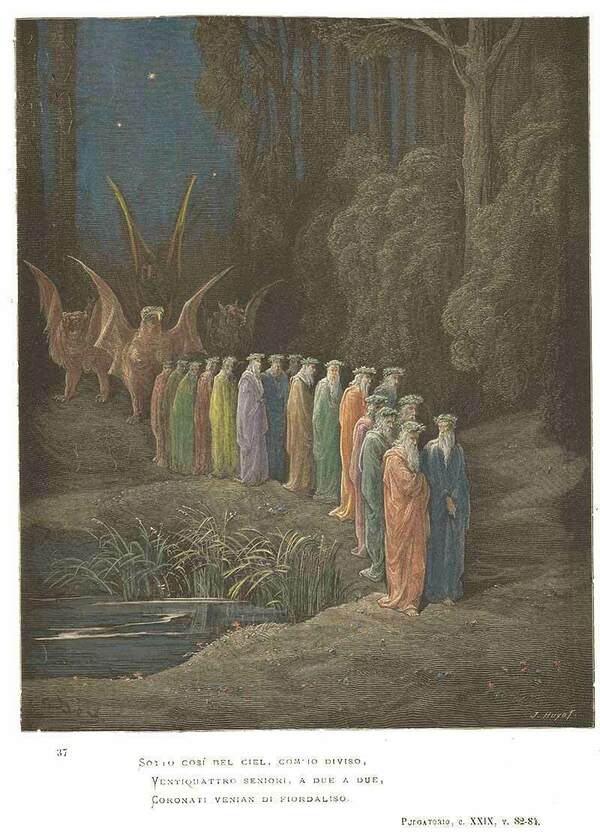Sommo Poeta: Dante at Notre Dame

In anticipation of the 700th anniversary of the death of Dante Alighieri, and on the Feast of the Annunciation, Pope Francis issued “Splendour of Light Eternal,” an apostolic letter calling Dante “supreme poet” and “prophet of hope and a witness to the innate yearning for the infinite present in the human heart.” The Holy Father added that he wished to join the popes before him in honoring and extolling the poet and “to propose him anew for the consideration of the Church, the great body of the faithful, literary scholars, theologians and artists.”
The University of Notre Dame has long traditions in the research and teaching of Dante and is today considered one of the leading centers in the world for the study of the great Catholic poet.
“I am often asked how Dante is relevant for today. The answer is very simple: Dante confronted a world that was culturally, politically and spiritually in profound crisis.”
When in 1321, the same year he died, Dante completed his “Divine Comedy” — a defining work of Western literature — he could not have anticipated the centuries-long impact of his three-canticle, 100-canto, 14,233-line, hendecasyllabic, terza rima poem. But those closest to his work are not surprised.
Just ask Theodore Cachey, University of Notre Dame professor of Italian and the Ravarino Family Director of Italian and Dante Studies.
Dante Now
In 2020, Cachey was appointed by the Pontifical Council for Culture to serve on the centenary planning committee, which is sponsoring exhibits, conferences, readings and publications on Dante during 2021 and beyond. Among the Dante studies experts appointed to the committee, he is the sole member who is outside of Italy, and, in addition to this service to the Vatican, Cachey and colleagues in Notre Dame’s Center for Italian Studies have planned a full year of commemorative academic and general interest events, including a distinguished lecture series on “Dante in America.”
Read the full article at Notre Dame Stories.